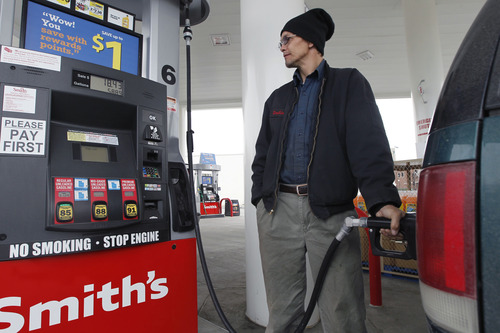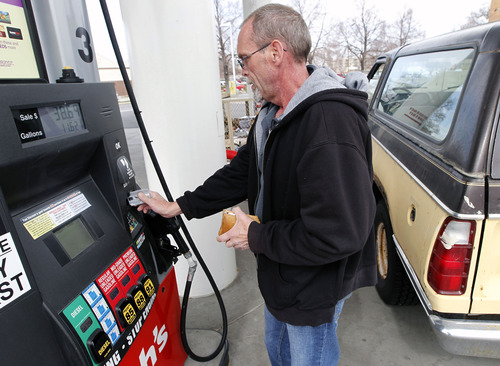This is an archived article that was published on sltrib.com in 2013, and information in the article may be outdated. It is provided only for personal research purposes and may not be reprinted.
Ever notice how some merchants ask for your ZIP code when you're using a credit card at the checkout?
It's becoming a common practice, and most consumers reflexively disclose the code, believing it's a security measure.
But that's not always the case. Some retailers use the information to send unwanted catalogs, junk mail and telemarketers your way.
So says Paul Stephens, director of policy and advocacy for the San Diego-based nonprofit, Privacy Rights Clearinghouse. Stephens warns that the five-digit piece of information can tell retailers a lot about you when paired with your name and credit card number. He also says some merchants sell the information to data brokers to create full consumer profiles.
"It's quite widespread," Stephens said. "Consumers don't even know these profiles exist."
Earlier this month, the Supreme Judicial Court of Massachusetts ruled that retailers can't require ZIP codes during a credit card transaction if the information is used for data collection or marketing, making it the second state to do so.
But they can use it for fraud prevention, and that's primarily why Utah vendors say they ask for ZIP codes, said Dave Davis, president of the 600-member Utah Retail Merchants Association.
"I'm not aware of any [Utah] retailers collecting (ZIP codes) and using them for [data mining]," he said.
At Smith's Food & Drug stores, company spokeswoman Marsha Gilford said the grocer's gas stations require ZIP codes on all credit card purchases at the pump, but that it often does not do so for in-store purchases.
"Inside the store, you have the benefit of a personal interaction between a checker and a customer, and whatever ID is required can be verified," Gilford said. "At the fuel pump, there's really no check. If someone is using someone else's credit card, they really need to know that billing ZIP code to be able to utilize that card. It's more of a precaution we take for our customers to prevent fraudulent use of their card."
There is a similar requirement at the 200 Chevron and Texaco franchises in Utah, Chevron spokesman Greg Hardy said. "If a customer doesn't want to enter a ZIP code, they can go inside in the store and make the purchase," Hardy said.
Some credit card companies take fraud prevention beyond the pump. American Express spokeswoman Amelia Woltering said the company began requesting ZIP codes from customers at gas stations and at top national retail chains in 2003.
"Every American Express transaction goes through a fraud screen (that includes ZIP codes)," Woltering said. "Often we are able to detect problems even before a card member is aware of it."
Woltering said that retailers don't keep the ZIPs acquired through American Express purchases.
But privacy advocates want to make sure that fraud prevention measures don't open the door for data collection. Similar to the Massachusetts ruling, the California Supreme Court ruled in 2011 that merchants can't record personal information in conjunction with a credit card transaction for marketing purposes.
"A ZIP code sounds like something generic, but it does constitute personal information," said Stephens of Privacy Rights Clearinghouse said.
Twitter: @jnpearce





